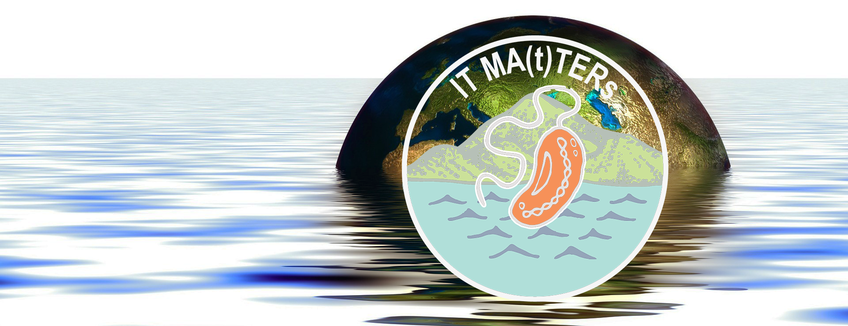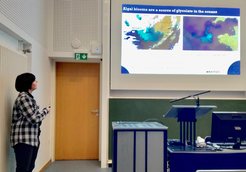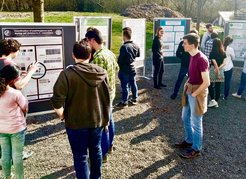
3rd“It Ma(t)Ter(s)” Conference in Marburg
On the 1stand 2ndof April, the 3rd“It Ma(t)Ter(s)” Conference was held in Marburg. Here doctoral researchers and early carrier researchers had the chance to present and discuss their work on microbiology in multiple talk and poster sessions.

The Max Planck Society operates in 84 Max Planck Institutes all over Germany as well as abroad. The Max Planck Institute for Marine Microbiology (MPI-Ma) in Bremen and the Max Planck Institute for Terrestrial Microbiology (MPI-Ter) in Marburg are the only two institutes focused exclusively on microbiology. While the focus of the two institutes differs in terms of their geographical orientation, both their research aims are to increase our knowledge on how microorganisms function and contribute to important processes on our planet. In order to combine the knowledge of the two institutes, to establish new collaborations and to network and discuss fascinating cutting edge science, the “It Ma(t)Ters” Conference was initiated by the PhD Representatives of Marburg and Bremen in 2017. The first conference took place in Marburg, the year after researchers from Marburg got the opportunity to travel to Bremen.

This year the MPI in Marburg hosted the conference again. In several sessions doctoral researchers presented their research on, e.g. phage infection, correlative microscopy with mass spectrometry, synthetic CO2 fixation, automating microscopy, cell division, bacterial swarming and type three secretion systems. The highlight of the conference this year was a talks from Prof. Dr. Regine Kahmann, director of the MPI Marburg and Dr. Jan-Stefan Völler, Associate Editor of Nature Catalysis. Prof. Dr. Regine Kahmann shared her unique experience throughout her career in science and how her “love for phages has shifted to a fungus that is a plant pathogen” over time. Dr. Jan-Stefan Völler, elucidated how a manuscript is treated from submission to publication and how a career path in publishing in the Nature group can look. After those and many other talks given by doctoral researchers, two posters sessions allowed a more detailed discussion on the individual research topics. Overall, all departments and research groups of the MPI Marburg where represented throughout the conference. Altogether the conference gave rise to may scientific discussions in a lively and interactive way between the different researchers and institutes and we are looking forward to a continuation of the format, next time in Bremen.

